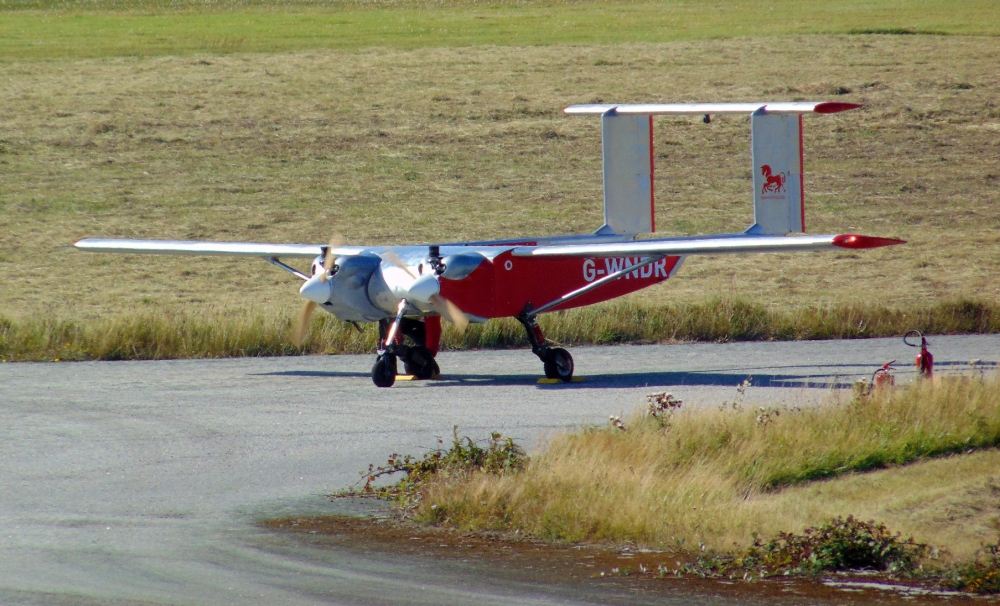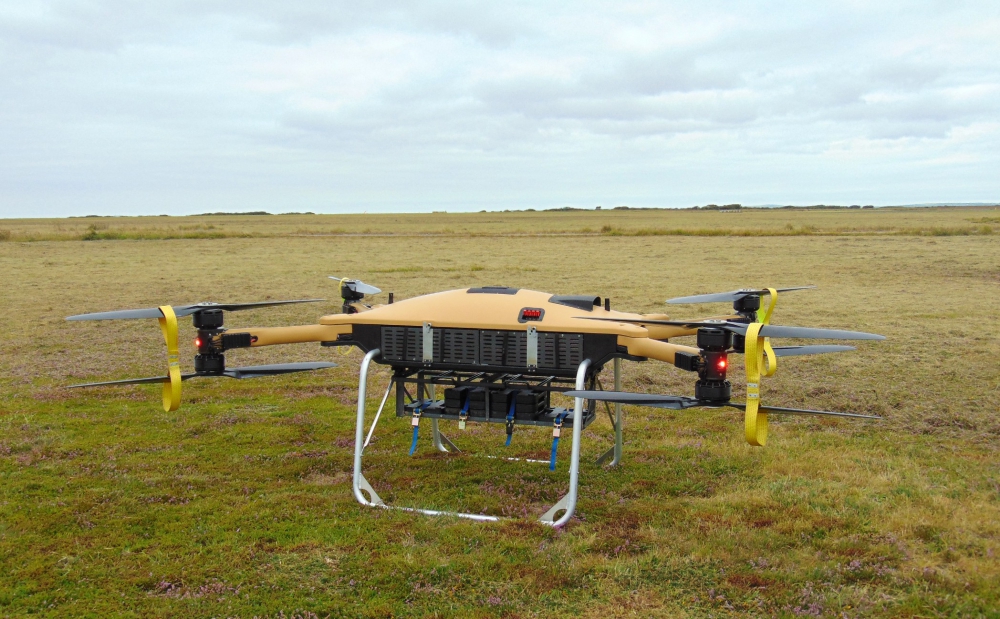The UK Royal Navy is developing new approaches to acquire autonomous solutions to support operational activities – such as how to get supplies to the frontline of operations.
Royal Naval Air Station Culdrose hosted the inaugural Heavy Lift Challenge, calling on drone manufacturers to showcase crewless technology which could be adapted to carry supplies and cargo to ships and personnel.
The competition was a chance for the navy to test how it can quicken the procurement process and get off-the-shelf, readily-available tech into the hands of sailors and marines sooner.
The Royal Navy and Royal Marines have already put a range of drones through their paces, demonstrating ability to lift and deliver payloads in excess of 100kgs, including a drone system used to deliver post in trials by the Royal Mail.
The next stage is to see what equipment exists which could carry a heavier load of up to 300kg.
Organised by the Navy’s drone experts 700X Naval Air Squadron, Defence Equipment and Support (DE&S) and the Office for the Chief Technology Officer RN, the competition saw two companies – Malloy Aeronautics and W Autonomous Systems – awarded £300,000 contracts to develop their remotely piloted air systems (RPAS) to lift beyond 200kg.
One of the drones taking part in the challenge proved its ability to deliver other supplies in trials earlier this year which saw the Royal Mail deliver post to the Isles of Scilly.
At Predannack Airfield near Culdrose, they had to carry payloads in excess of 100kg – that’s more than two fully-loaded Royal Marines bergen backpacks – and pass tests for speed, endurance and accuracy of payload delivery.
Lieutenant Commander Martin Howard, the commanding officer of 700X NAS, said:
“It has been great to be involved in this exciting project which is pushing the boundaries of technology as well as the method by which Defence procures equipment. The heavy lift challenge has showcased Predannack’s utility as an RPAS trials location with opportunities for Defence and the commercial sector.”
It is hoped the drones could be used to transport cargo autonomously, delivering vital supplies like ammunition, spare parts and first aid to personnel on the front line. This would lead to lower operating costs as well as protecting personnel by sending uncrewed systems into conflict zones.
Royal Navy Chief Technology Officer, Brigadier Dan Cheesman said:
“This challenge is a dynamic collaboration between DE&S, industry and ourselves. Our co-creation of a ground-breaking commercial mechanism means we are able to investigate cutting-edge technology at pace and explore solutions for the Future Maritime Aviation Force and the wider Armed Forces. It’s exciting times for Defence and the market.”
The challenge also gave DE&S the chance to test a new commercial framework of making procurement processes for new equipment quicker.
James Gavin, head of Future Capability Group at DE&S, added:
“This project is about exploring emerging technology which could be of future use to the Royal Navy and other front-line commands and new acquisition approaches like RAPSO (Rapid Agile Prototyping, Scaled for Operations) to ensure any operational advantage can be delivered to our UK Armed Forces at pace.”


